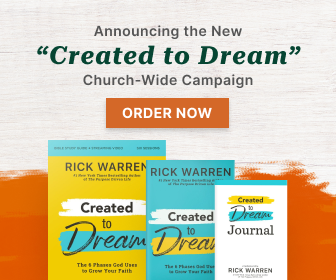Leadership
9 Ways to Spot a Great Book for Your Ministry Library

Churches don’t grow without growing leaders.
If we don’t take in truth, we can’t give it out. Over the years at Saddleback, I’ve developed a habit of reading myself out of a rut. When I’m struggling to figure out what’s next or to break past a growth barrier, I’ve leaned into reading before taking my next big step. Few habits will help you in ministry as much as a regular diet of reading.
Every profession has its tools. You can’t be a doctor without a stethoscope. You can’t be a carpenter without a hammer and a saw. The minister’s tools are his books. We’re in the feeding, leading, and communicating business. Reading helps us do that more effectively.
With the new year just a few days away, it’s a good time to start a new reading habit.
But what kind of books should a Christian leader read?
Good ones.
I agree with James Bryce, who is credited with saying, “Life is too short to spend it reading inferior books.”
Here are nine ways you can find a jewel amid all the books out there.
1. Start with the author.
This is where you begin when evaluating a potential book to read. With certain authors, I will read everything they write. There are certain other authors that I won’t read, regardless of what they write. You must learn from experience who is good and who is not.
2. Look at the author’s credentials.
Take a look at the author’s bio. You want to make sure the author knows what he or she is writing about. If it’s a book on preaching, you probably want to know that the author has experience preaching. If it’s a book on management, you want to know whether the author has ever been in a management position. Experience matters.
3. Scan the material at the front of the book (including the table of contents and the foreword).
Look at the chapter titles. They will help you decide if it’s worth reading the book (it might even be a great book, but determine if it will cover the kind of information you’re looking for). Pay attention to the foreword. Sometimes I’ll read through the foreword while standing in the bookstore. And if you’re buying it online, you often can get access to the table of contents and foreword before you purchase.
4. Look at who the author references.
Before I buy a book, I always look at the back and see who the author cites. An author’s choice for quotations tells you a lot about the book. If they’re quoting people I highly respect, it tells me it’s probably worth reading even if I haven’t read much from that author.
5. Be skeptical of bold claims.
If a book makes a claim that sounds too good to be true (like 60 Days to Success or Two Weeks to Revolutionize Your Life), you can probably pass on the book. Success in any venture requires effort. Any book that guarantees an easy outcome is simply misguided hype.
6. Stay away from books by celebrities or about celebrities.
I rarely read a book about a celebrity. Every once in a while you’ll find one that’s good, but usually they’re only filled with fluff.
7. Check out book reviews.
Many magazines and websites regularly review books. Thanks to Google you can find reviews of just about any book. Before you buy a book, search for reviews on it. But be careful, because even book reviewers come to their reading with biases at times.
8. See who the publisher is.
Every publisher has a reputation. The more you pay attention to the publisher, the more you realize that certain publishers produce better books on particular topics than others.
9. Press pause before buying.
I usually don’t buy a book when it’s first released (especially if I don’t know the author). If the “hot” books are worthwhile, they’ll stand the test of time. A book that’s been around for 20 printings is a pretty safe choice. Often, the best-sellers don’t stick around long. But be patient. Good books will prove their worth by staying on the market for an extended period of time.
By the way, if your church has given you a book budget for 2018, make sure you use it. I don’t mean just quickly buy books you won’t read, but make sure you take advantage of the investment your church is making in your ministry through giving you that budget.















